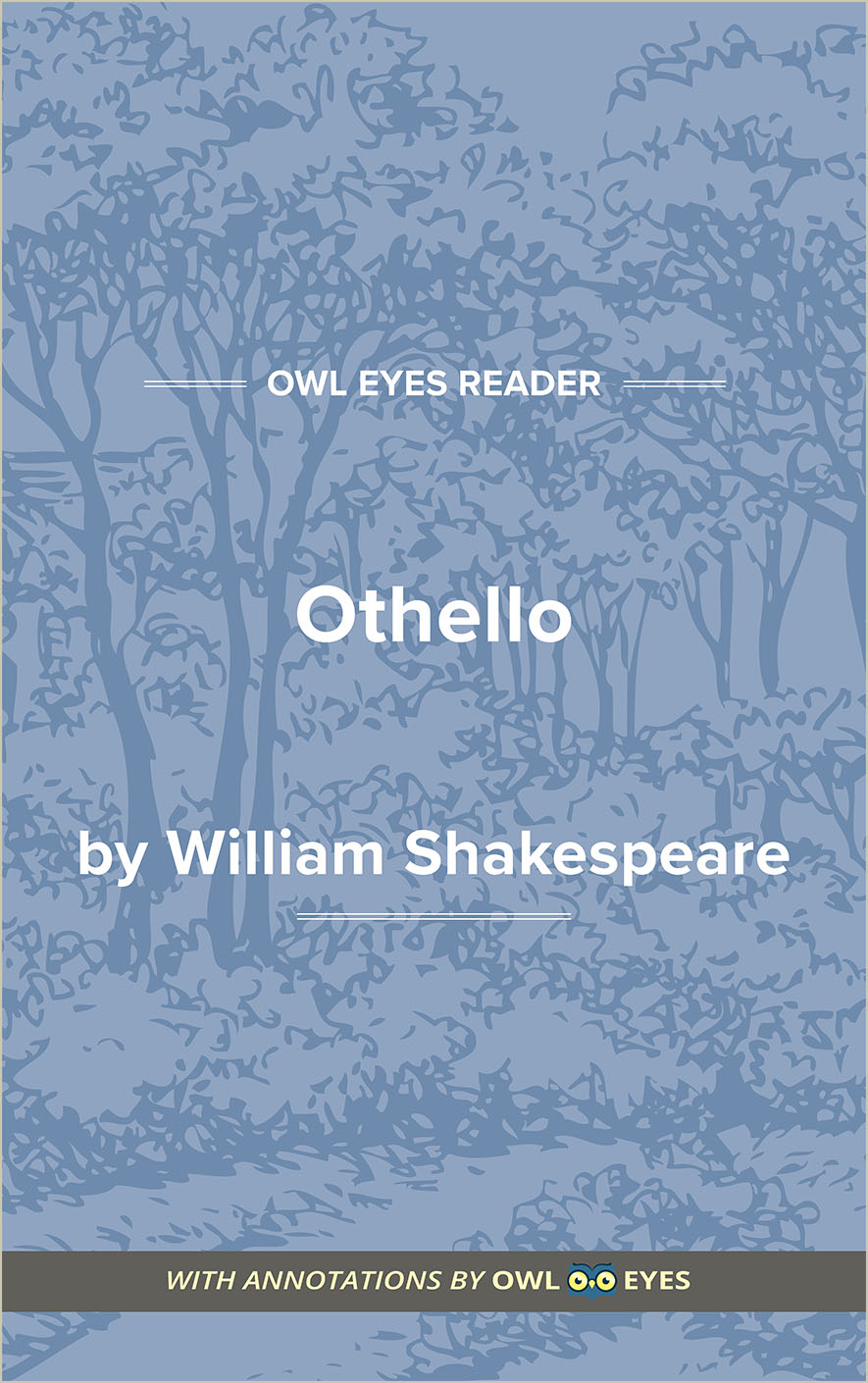Analysis Pages
Themes in Othello
Jealousy: In contemporary culture, Othello has become known as the quintessential parable about the tragic effects of jealousy. Iago’s primary tactic in bringing Othello to ruin is to sow seeds of distrust in the general’s mind. Iago manipulates the play’s events to lead Othello to believe that Desdemona is having a sexual affair with Michael Cassio. The great irony at the heart of the play is that the jealousy—the “green-eyed monster”—is an illusion, but yields real disaster.
Racism: Othello’s ethnic background is the source of a great deal of tension in the play. Beyond being referred to as the “Moor,” his lineage is never revealed. Scholars continue to debate the meaning of “Moor.” By some definitions, the term refers to those of North African origin, but in other cases it encompasses those of all Arab civilizations. Othello’s race serves as the source of one of the play’s central metaphors: black as wicked, defiled, or dishonest. Morally charged black and white imagery surfaces throughout the play.
Emotion and Reason: In a conversation with the forlorn, lovestruck Roderigo, Iago encourages the man to use his reasoning faculties to overcome his powerful emotions. The contrast between reason and emotion becomes a central theme of the play. Othello presents himself as a rational individual in the first act, but he descends into a mindless frenzy by play’s end. Iago is, as he claims, cerebral and cunning, but his actions are ultimately driven by emotional motives—in his case, a desire for revenge.
Themes Examples in Othello:
Act I - Scene III
🔒"'Tis in ourselves that we are thus or thus. Our bodies are gardens, to the which our wills are(340) gardeners;..." See in text (Act I - Scene III)
"as truly as to heaven I do confess the vices of my blood,..." See in text (Act I - Scene III)
"To fall in love with what she fear'd to look on!..." See in text (Act I - Scene III)
"For nature so preposterously to err, Being not deficient, blind, or lame of sense, Sans witchcraft could not...." See in text (Act I - Scene III)
Act II - Scene I
🔒"She never yet was foolish that was fair;(150) For even her folly help'd her to an heir...." See in text (Act II - Scene I)
Act III - Scene III
🔒"And yet, how nature erring from itself—..." See in text (Act III - Scene III)
"She did deceive her father, marrying you; And when she seem'd to shake and fear your looks,(230) She loved them most...." See in text (Act III - Scene III)
"Think'st thou I'ld make a life of jealousy,(200) To follow still the changes of the moon With fresh suspicions? No!..." See in text (Act III - Scene III)
"Who steals my purse steals trash..." See in text (Act III - Scene III)
Act III - Scene IV
🔒"'Tis very good; I must be circumstanced...." See in text (Act III - Scene IV)
"But jealous for they are jealous. 'Tis a monster(170) Begot upon itself, born on itself. DESD: Heaven keep that monster from Othello's mind!..." See in text (Act III - Scene IV)
Act IV - Scene I
🔒"his unbookish jealousy..." See in text (Act IV - Scene I)
"O, it comes o'er my memory, As doth the raven o'er the infected house, Boding to all..." See in text (Act IV - Scene I)
Act IV - Scene II
🔒"Heaven stops the nose at it, and the moon winks;(85) The bawdy wind, that kisses all it meets, Is hush'd within the hollow mine of earth, And will not hear it...." See in text (Act IV - Scene II)
"I durst, my lord, to wager she is honest, Lay down my soul at stake. If you think other, Remove your thought; it doth abuse your bosom.(15) If any wretch have put this in your head, Let heaven requite it with the serpent's curse! For if she be not honest, chaste, and true, There's no man happy; the purest of their wives Is foul as slander...." See in text (Act IV - Scene II)
Act IV - Scene III
🔒"Then let them use us well; else let them know, The ills we do, their ills instruct us so...." See in text (Act IV - Scene III)
Act V - Scene II
🔒"All that's spoke is marr'd...." See in text (Act V - Scene II)
"O, banish me, my lord, but kill me not..." See in text (Act V - Scene II)
"When I have pluck'd the rose, I cannot give it vital growth again..." See in text (Act V - Scene II)

